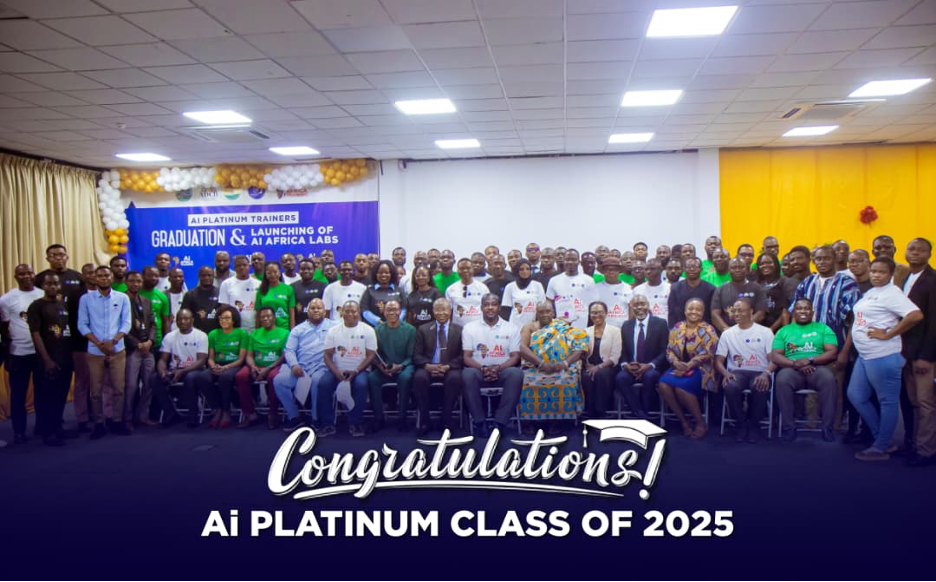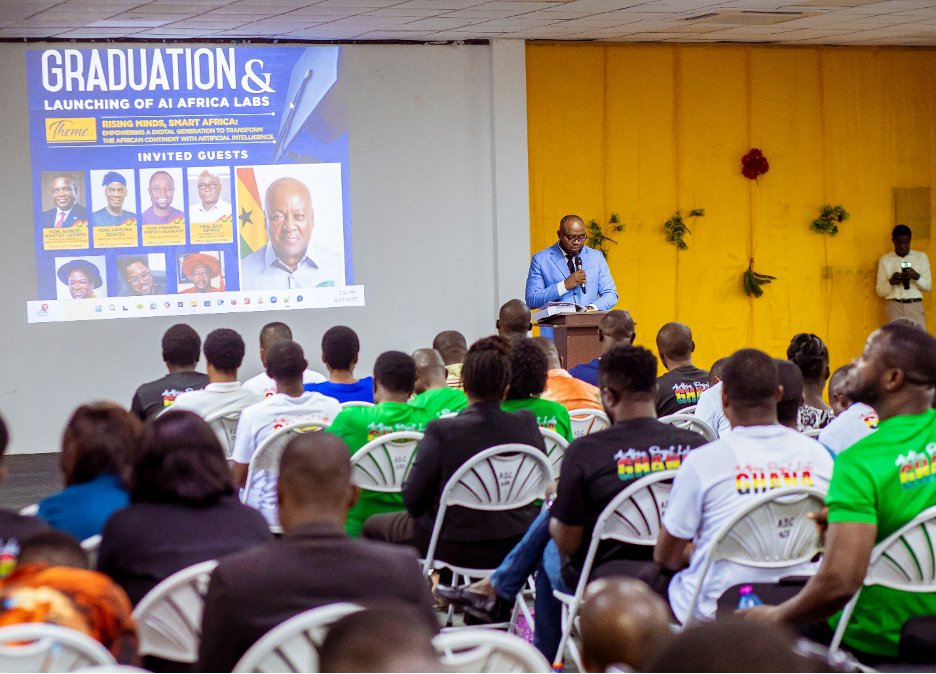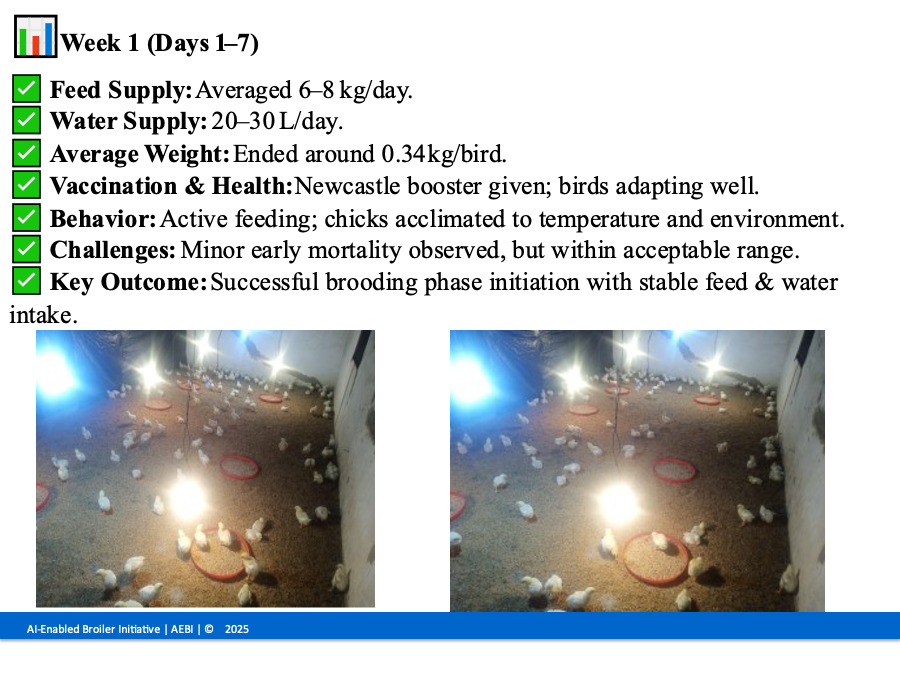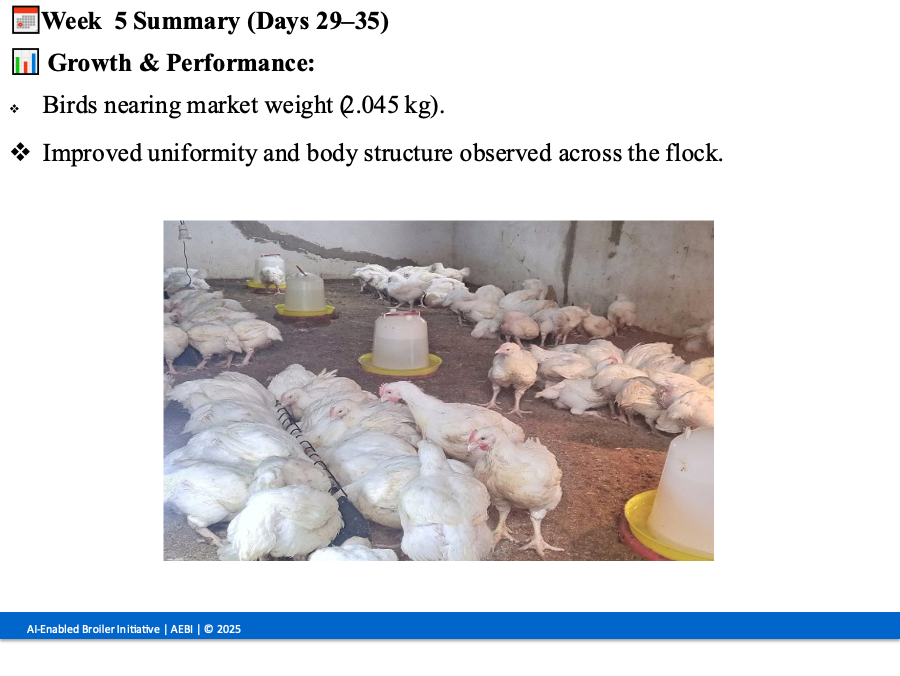
Ghana has become the first nation to launch a country-authored Prompt Bible—a 1,000+ page, execution-ready manual that turns Artificial Intelligence into day-and-night production. Titled the Ghanaian AI Prompt Bible, it delivers more than inspiration: it delivers tooling. Inside are 2,000+ sector prompts, evaluation rubrics, data checklists, and Proof-of-Value (PoV) templates that let ministries, universities, cooperatives, and financiers move from talk to traction in weeks. Authored by three practitioner-scholars – Dr. David King Boison, a two-time PhD and Lead Consultant of AiAfrica Labs with two decades of work across AI, ports, and public finance; Professor Nelson Alino, a management strategist and co-author of both the Ghanaian and forthcoming Nigerian Prompt Bibles; and Professor Iddrisu Awudu, a supply-chain and operations expert whose research and industry practice span logistics optimisation and data-driven policy—the book fuses Pan-African vision with factory-floor pragmatism. It integrates supervised AI with validated satellite and ground-truth data, so every prompt can be instrumented, audited, and financed. Crucially, it couples the playbook with a real execution engine: a national network of AiAfrica Labs that run 24/7 sprints to design, simulate, field-test, validate, and scale what works.

Youth are mobilised through the National Youth Employment Authority into Prompt Pods—prompt engineers, data verifiers, field technicians, and inclusion officers—so learning converts directly into livelihoods. Regionally, the momentum is coordinated: Nigeria will launch its own Prompt Bible next month under the Ministry of Digital Economy and E-Governance, with Labs hosted at Digital City Imo and most universities statewide. In short, this book delivers a complete operating system for industrial-scale problem-solving: prompts that target value, methods that measure it, and Lab shifts that turn it into jobs, exports, and resilient public services. It is a national compass, a financing dossier generator, and a cultural catalyst—built to sing in Twi, Ga, Ewe, Hausa, Fante, and Bono boldly at scale.
1. Why these matters important for Ghana and Africa

Because the book is not a theory of change—it is the tooling of change. Nkrumah warned that political freedom without economic power leaves nations vulnerable; this manual operationalises power by turning raw resources, public services, and creative talent into verifiable value. For Ghana, a 24-hour economy needs shift-ready workflows, trustworthy data, and bankable dossiers: the Prompt Bible prescribes all three. It tackles the commodity trap by moving cocoa, cassava, gold, bauxite, fisheries, and stones up the value chain with prompts that specify processing routes, quality gates, logistics, and market access. It diversifies foreign exchange through exportable digital services and agrifood outputs, while cutting import dependence via local manufacturing templates. It addresses youth unemployment by converting classrooms into capstone studios and Labs, where National Youth Employment Authority cohorts are paid for outcomes, not attendance, and where skills are badged, portable, and matched to national missions. It makes governance more trusted by hard-wiring algorithmic audits, open contracting, and service dashboards that financiers can underwrite. It advances language justice by defaulting to Twi, Ga, Fante, Bono, Hausa, and Ewe interfaces so last-mile farmers, traders, and nurses can speak and be served. It strengthens data sovereignty: supervised models are instrumented with satellite and ground truth owned locally, with consent and audit trails.

Regionally, it seeds a Pan-African production wave: Nigeria’s imminent launch—led by the Ministry of Digital Economy and E-Governance and anchored at Digital City Imo with university Labs—establishes cross-border replication, shared benchmarks and learning. For financiers, the book standardises Proof-of-Value so risk teams can fund proofs, not pitches, compressing time to capital. And for climate resilience, it embeds water, soil, weather, and energy telemetry into decisions, lifting yields, reducing waste, and stabilising prices. In sum, it is a continental engine for jobs, exports, inclusion, and dignity.
2. Nkrumah, now: The Doctrine for a 24-Hour Economy
This book translates Osagyefo Dr. Kwame Nkrumah’s charge— “we face forward”—into a practical doctrine with three unities that power a 24-hour economy. Unity of Purpose means national priorities are expressed as measurable missions, not slogans. The Ghanaian AI Prompt Bible supplies mission-ready prompts aligned to ministries’ mandates (from cocoa value-addition to corridor logistics), plus Proof-of-Value (PoV) rubrics that tie budgets to verifiable outcomes. Unity of Tools replaces ad-hoc projects with a common operating system: standardised prompts, supervised models, open data schemas, and EO/satellite validation so every prototype is auditable, financeable, and replicable. Local-language interfaces (Twi, Ga, Fante, Bono, Hausa, Ewe) make inclusion the default, not an afterthought. Unity of Time organises work into synchronised shifts: day (policy and delivery), evening (iteration and routing), night (audits, forecasts, model retraining). AiAfrica Labs run these cycles, while the National Youth Employment Authority deploys Prompt Pods—prompt engineers, field technicians, data verifiers, and inclusion officers—paid for results.

Why does this matter for Ghana and Africa? Because coordination is an economic multiplier. Fragmented pilots waste scarce capital; unified missions compress time-to-proof, lower risk, and unlock scale. With Ghana, the first country to launch a national Prompt Bible—authored by Dr. David King Boison (two PhDs; AI, ports, public finance practitioner), Professor Nelson Alino (management strategist; co-author of the Ghanaian and Nigerian editions), and Professor Iddrisu Awudu (operations and supply-chain expert)—Africa gains a template for disciplined execution. Next month, Nigeria will launch its edition, driven by the Ministry of Digital Economy and E-Governance, with Labs hosted at Digital City Imo and across universities, creating a replication corridor with shared benchmarks and cross-border finance. For investors, the doctrine standardises risk; for governments, it raises trust through transparent dashboards and algorithmic audits; for youth, it converts learning into livelihoods on a 24/7 cadence. In essence, the doctrine operationalises Pan-African self-reliance—turning raw resources, public services, and creative talent into bankable value, shift after shift, across the continent.
3. Youth at the Centre: National Youth Employment Authority as the Engine Crew
This book turns Ghana’s youth bulge into the nation’s competitive engine by giving the National Youth Employment Authority (NYEA) a concrete operating model—Prompt Pods that staff a 24-hour economy. It delivers job architectures, training ladders, and pay-for-proof contracts so young people earn by solving real problems. Each Pod is a four-role cell: Prompt Engineers translate mission prompts into tasks and KPIs; Field Technicians instrument farms, clinics, warehouses, and ports; Data Verifiers quality-check logs, satellite/EO overlays, and compliance; Inclusion Officers ensure local-language access and accessibility. The book provides shift rosters, safety SOPs, ethical-AI checklists, satellite/ground-truth validation flows, and a micro-credential system that badges competencies (Prompt Design, M&E, Geo-Intel, Algorithmic Audit). Crucially, compensation is tied to verified outcomes—reduced postharvest loss, shorter clinic turnaround, lower dwell time at ports—not to attendance. That alignment converts talent into measurable national value. Why these matters for Ghana and Africa: it absorbs graduates into meaningful work immediately, stabilises incomes with predictable PoV sprints, and spreads opportunity beyond capitals by locating Pods in districts and campuses. It also structures cross-border careers: shared standards let Ghanaian Pods collaborate with peers in other countries on identical prompts. That network effect begins now because Ghana is the first country to launch a national Prompt Bible, authored by Dr. David King Boison (two PhDs; practitioner across AI, ports, and public finance), Professor Nelson Alino (management strategist; co-author of the Ghanaian and Nigerian editions), and Professor Iddrisu Awudu (operations and supply-chain expert). Nigeria will launch its Prompt Bible next month, driven by the Ministry of Digital Economy and E-Governance, with Labs hosted at Digital City Imo and most universities—creating mobility pathways where NYEA-style Pods can co-execute, co-publish proofs, and compete on excellence. For financiers and employers, the youth system derisks hiring: every CV carries verifiable PoV dossiers and audit trails. For communities, local-language service agents (Twi, Ga, Fante, Bono, Hausa, Ewe) make the benefits visible at the last mile. In short, the book transforms youth from job seekers into shift-ready nation builders.
4. Inside the Bible: Chapters That Become 24-Hour Workstreams
This 1,000+ page Prompt Bible converts its expansive Table of Contents into shift-ready workstreams that ministries, firms, cooperatives, and universities can run day, evening, and night. Each chapter follows a common pipeline—problem stack → prompt stack → prototype stack → proof-of-value stack—and every sprint is instrumented with supervised models, validated satellite/EO layers, and ground-truth logs, so outputs are auditable and financeable. In Ports, Maritime & Logistics, prompts drive berth and yard digital twins, corridor routing, and dwell-time reduction; the evening shift updates models from AIS and gate telemetry while the night shift reconciles losses and forecasts flows. Public Sector & Governance chapters standardise open contracting, service dashboards, and algorithmic audits, turning ministries into measurable service factories.

Healthcare & Life Sciences operationalises triage, referral, and stock forecasting that work even in low-bandwidth settings, with night analytics supporting day care. Financial Services & Digital Inclusion enables KYC automation, SME cash-flow scoring, and fraud detection that plug directly into results-based lending. Education & Skills aligns capstones to deployment rubrics so studios ship tools, not PDFs. Agriculture & Food Systems packages yield prediction, disease advisories, storage, certification, and market access, all verified by EO and IoT plots. Blue Economy & Fisheries orchestrates feed optimisation, water quality, harvest timing, and cold-chain routing. Creative Economy & Media scales verified, multilingual production and rights management. Railway, Mobility & Stones/Extractives use simulation, traceability, and asset-health monitoring to keep national movement safe and profitable.
A cross-cutting Indigenous Languages layer ensures Twi, Ga, Fante, Bono, Hausa, and Ewe interfaces by default. Execution is staffed by NYEA Prompt Pods—prompt engineers, field technicians, data verifiers, and inclusion officers—paid for verified outcomes. Ghana is the first country to launch a national Prompt Bible, authored by Dr. David King Boison (two PhDs; AI, ports, public finance practitioner), Professor Nelson Alino (management strategist; co-author of the Ghanaian and Nigerian editions), and Professor Iddrisu Awudu (operations and supply-chain expert). Nigeria launches next month, led by the Ministry of Digital Economy and E-Governance, with Labs hosted at Digital City Imo and most universities—creating a replication corridor with shared datasets and standards.
5. How the AiAfrica Labs Run (and Never Sleep)
The AiAfrica Labs are the book’s moving parts—where prompts become prototypes and prototypes become Proof-of-Value (PoV). Each Lab runs a five-step evidence loop on a 24/7 cadence: (1) Design with local constraints, supervised models, and validated satellite/EO layers; (2) Simulate scenarios and trade-offs; (3) Field-test in real settings—farms, wards, ports, markets; (4) Validate weekly with transparent KPIs; (5) Fund/Scale only what clears the bar. Every sprint produces a short, auditable PoV dossier—problem statement, dataset notes, methods, weekly metrics, costs/benefits, inclusion checks (language, accessibility), and risks—so banks, S&Ls, DFIs, and procurement boards can finance the proof, not the pitch. University anchoring keeps talent close to problems; capstones feed directly into Lab sprints; and National Youth Employment Authority Prompt Pods staff the shifts—Prompt Engineers, Field Technicians, Data Verifiers, Inclusion Officers—with compensation tied to verified outcomes, not attendance.
This operational model is what the 1,000+ page Ghanaian AI Prompt Bible delivers: standardised prompts, shared data schemas, governance checklists, and financing templates that any ministry, firm, or cooperative can run. Ghana is the first country to launch a national Prompt Bible, authored by Dr. David King Boison (two PhDs; practitioner across AI, ports, and public finance), Professor Nelson Alino (management strategist; co-author of the Ghanaian and Nigerian editions), and Professor Iddrisu Awudu (operations and supply-chain expert). Their practitioner scholarship ensures that every chapter is instrumentable, auditable, and replicable.
Why these matters for Ghana and Africa: continuous, shift-based learning compresses time-to-result; standardised PoV dossiers lower risk and unlock capital; and local-language interfaces (Twi, Ga, Fante, Bono, Hausa, Ewe) carry benefits to the last mile. It also seeds a regional production network. Nigeria will launch its Prompt Bible next month, driven by the Ministry of Digital Economy and E-Governance, with Labs hosted at Digital City Imo and most universities—creating cross-border benchmarks, pooled datasets, and joint PoV pipelines. As Labs never sleep, Ghana and Nigeria move from isolated pilots to a Pan-African manufacturing of proof—turning ideas into investable value, week after week.
6. Early Evidence: What Works—With Numbers
The Ghanaian AI Prompt Bible proves its worth where it matters most: on the ground, with numbers that investors, ministries, and communities can trust. Two flagship pilots—Smart Chickens and Smart Fish—demonstrate how disciplined prompts, supervised models, and instrumented operations compress learning cycles and turn ideas into bankable results.

In poultry, the AI-Enabled Broiler Initiative (AEBI) tracks feed, water, temperature, ventilation, weight, and welfare to recommend small, compounding decisions. The first full cycles show a predictable, finance-friendly rhythm: by Week 2 birds average ~0.76 kg with improving uniformity; by Week 5 mortality sits near ~2.7% (4/150 in a representative cohort) with weights ~2.05 kg and no major disease incidents; by Week 6 birds average ~2.59 kg—market-ready—stabilizing inputs and cash flow; Week 7 projects ~2.8 kg with orderly off-take. For banks and S&Ls, that’s a seven-week cash-flow cycle with transparent KPIs and an auditable PoV dossier; for ministries, it yields biosecurity and welfare metrics that scale; for universities and polytechnics, it’s living data for capstones and method improvement.

In aquaculture, Smart Fish (catfish on the Tapoline system) combines sensor-assisted water monitoring with AI-guided feeding, cutting feed costs by ~65% while achieving 600–800 g in ~3 months—aligning harvests to cold-chain and market windows and shortening loan tenors. Both pilots run with local-language workflows (Twi, Ga, Fante, Bono, Hausa, Ewe) so last-mile actors actually use the tools. Crucially, the model is replicable: cohorts, SOPs, and dashboards are standardized for rapid roll-out, with Imo State, Nigeria scheduled to replicate the poultry protocol within seven weeks, calibrated for feed, climate, and power. This is why it matters for Ghana and Africa: verifiable performance unlocks results-based finance, derisks procurement, and converts youth skill into paid outcomes on a 24/7 cadence. And Ghana leads the way—the first nation to launch a country Prompt Bible, authored by Dr. David King Boison (two PhDs; AI, ports, public finance practitioner), Professor Nelson Alino (management strategist; Ghanaian & Nigerian editions), and Professor Iddrisu Awudu (operations and supply-chain expert). Nigeria launches next month, led by the Ministry of Digital Economy and E-Governance, with Labs hosted at Digital City Imo and across universities.
7. Anthems of Production: Every Lab Has a Song
This book treats culture as production software. Every AiAfrica Lab is paired with a short, memorable anthem whose lyrics encode the exact value-addition steps, safety rules, and quality gates that teams must follow on shift. Why? Because a 24-hour economy succeeds when procedures live in people’s heads and hearts—not only in SOP binders. The anthems—performed in Twi, Ga, Fante, Bono, Hausa, and Ewe—double as micro-lessons for farmers, artisans, technicians, and students. They’re rehearsed at shift change, embedded in LMS modules via QR codes, broadcast on community radio, and remixed by campus choirs, turning technical know-how into a shared rhythm that reduces errors, speeds onboarding, and sustains morale.
Take the Cassava Anthem: it sequences “root → flour → high-quality flour (HQF) → starch → bioplastics → ethanol → animal feed → biogas,” reminding teams to separate peels for starch yield, test moisture before milling, and log energy recovery from waste. The Ginger Anthem encodes Good Agricultural Practices, post-harvest drying curves, oil/extract standards, and export documentation. Yam covers storage aeration, slicing, drying, aflatoxin controls, and feed blending, while Maize drills grading, hermetic storage, certification, and logistics routing. Short call-and-response lines (“measure, record, verify”; “clean, calibrate, confirm”) act as auditory checklists that junior staff can recall under pressure. In creative industries and public services, anthems teach rights management, AI verification, open-contracting steps, and data-privacy etiquette—turning compliance into habit.
This cultural layer matters for Ghana and Africa because it democratizes complex know-how. Where literacy or bandwidth is limited, music carries standard work to the last mile; where teams rotate around the clock, a shared song preserves continuity and pride. It builds brand stories for exports and tourism, turning “Made in Ghana” into a sound as well as a standard. And because Ghana is the first nation to launch a country Prompt Bible—authored by Dr. David King Boison (two PhDs; AI, ports, public finance), Professor Nelson Alino (management strategist; co-author of the Ghanaian and Nigerian editions), and Professor Iddrisu Awudu (operations and supply-chain expert)—these anthems are already being packaged for Nigeria’s launch next month, led by the Ministry of Digital Economy and E-Governance, with Lab performances hosted at Digital City Imo and university stages. Culture, here, is not decoration; it is a control system for excellence.
8. Stakeholder Playbooks: Finance, Government, Universities, Communities
This book ships ready-made playbooks so every stakeholder can act today and be measured tomorrow. For Banks, S&Ls, and DFIs, it standardises risk through Proof-of-Value (PoV) dossiers: a 6–12-page packet with problem statements linked to national priorities, dataset notes (including satellite/EO validation), operating procedures, weekly KPIs, cost–benefit snapshots, inclusion checks, and replication plans. Credit teams fund proof, not pitch—releasing tranches only when independently verified milestones are met (e.g., dwell-time cuts, yield lifts, loss reductions). The result is faster underwriting, cleaner recoveries, and a pipeline of investable projects across agrifood, logistics, health, and MSMEs.
For Government MDAs & MMDAs, the book provides regulatory sandbox scripts, open-data schemas, procurement-by-outcomes templates, and public dashboard patterns. Agencies move from ad-hoc pilots to shift-scheduled services: day (delivery), evening (iteration), night (audits & forecasts). Algorithmic-audit checklists raise trust; outcome-tied budget releases raise discipline; local-language interfaces (Twi, Ga, Fante, Bono, Hausa, Ewe) raise inclusion.
For Universities & Polytechnics, it converts curricula into Capstone Studios that ship. Faculty get prompt packs, ethics and consent templates, API-ready datasets, and assessment rubrics bound to operational KPIs. Students earn micro-credentials (Prompt Engineering, Field Instrumentation, M&E, Geo-Intel, Algorithmic Audit) and flow directly into National Youth Employment Authority Prompt Pods—paid for verified outcomes.
For Media, Civil Society & Faith Communities, it offers verification pipelines (AI-assisted fact-checking, rights management), community scorecards, and weekend clinics in local languages to drive last-mile adoption. Culture is baked in: Lab anthems encode SOPs as mnemonic songs so procedures stick across rotating shifts.
Why these matters for Ghana and Africa: coordinated playbooks compress time-to-execution, lower financing risk, and turn learning into livelihoods on a 24/7 cadence. Ghana is the first nation to launch a country Prompt Bible, authored by Dr. David King Boison (two PhDs; AI, ports, public finance practitioner), Professor Nelson Alino (management strategist; co-author of the Ghanaian and Nigerian editions), and Professor Iddrisu Awudu (operations and supply-chain expert). Nigeria launches next month, led by the Ministry of Digital Economy and E-Governance, with Labs hosted at Digital City Imo and most universities—creating cross-border standards, pooled datasets, and joint PoV financing.
9. Who We Have Trained—A Growing National Fabric
This book does not appear in a vacuum; it lands in a country already seeded with practitioners. The rollout to date maps a living network that spans public agencies (e.g., Greater Accra Regional Coordinating Council; Ghana Free Zones Authority; Ghana Digital Centers Limited), universities and technical institutions (Accra Technical University, Sunyani Technical University, Ho Technical University, Wisconsin International University College—Ghana, College of Health–Yamfo), industry and cooperatives (Jospong Group, Amenfeman Rural Bank, Ghana National Tailors & Dressmakers Association–Tema), and civic, faith, and media partners (Adidome Traditional Area; EP Church, Lashibi; Ghana Journalists Association—Tema). The book delivers a capacity architecture that turns this map into muscle: train-the-trainer ladders; Capstone Studios that ship; NYEA Prompt Pods embedded in MDAs/MMDAs and SMEs; and Proof-of-Value (PoV) standards that make every cohort’s work auditable, comparable, and financeable. Each training path is tied to micro-credentials (Prompt Engineering, Field Instrumentation, M&E, Geo-Intel, Algorithmic Audit), local-language delivery (Twi, Ga, Fante, Bono, Hausa, Ewe), and satellite/ground-truth validation, so skills translate into verifiable results. Why these matters for Ghana and Africa: absorptive capacity decides whether technology becomes headlines or incomes. With 250,000+ people already trained in Ghana—and 2.3 million learners touched across the wider program (nearly 2 million in Imo State, Nigeria alone)—the book’s 1,000+ pages now slot into a workforce that can operate a 24-hour economy: day (delivery), evening (iteration), night (audits and forecasting). The network reaches from lecture hall to landing site, from clinic to cold-chain, converting theory into throughput. Ghana is the first nation to launch a country Prompt Bible, authored by Dr. David King Boison (two PhDs; practitioner in AI, ports, and public finance), Professor Nelson Alino (management strategist; co-author of the Ghanaian and Nigerian editions), and Professor Iddrisu Awudu (operations and supply-chain expert). Nigeria launches next month, led by the Ministry of Digital Economy and E-Governance, with Labs hosted at Digital City Imo and most universities—extending this trained fabric into a Pan-African production web that shares prompts, datasets, and PoV pipelines for speed and scale
10. The 24-Hour Blueprint: How It All Knits Together
This 1,000+ page Prompt Bible is not a catalogue; it is a clockwork—a national operating system that keeps Ghana’s economy productive across day, evening, and night. It knits five gears into one motion. (1) National priorities → Prompt missions: Cocoa, cassava, corridors, clinics, cold-chains—each priority is translated into mission prompts with KPIs, data checklists, and governance rules so work is measurable from the start. (2) Labs as execution plants: AiAfrica Labs run short Proof-of-Value sprints, fusing supervised models with validated satellite/EO and ground-truth data. They design, simulate, field-test, and validate weekly, generating auditable PoV dossiers that banks, S&Ls, DFIs, and procurement boards can fund. (3) Youth as the skilled workforce: The National Youth Employment Authority deploys Prompt Pods—prompt engineers, field technicians, data verifiers, inclusion officers—paid for verified outcomes (yield gains, dwell-time cuts, loss reduction), not attendance. (4) Education as fuel: Capstone Studios that ship; faculty use ready-to-teach prompt packs, ethics templates, and API datasets, so theses become deployed tools. (5) Finance as accelerator: Results-based lending and procurement-by-outcomes release capital only when milestones are independently verified, compressing time from idea to investable result.
Why these matters for Ghana and Africa: the blueprint replaces fragmented pilots with a 24/7 production rhythm that compounds learning and lowers risk. Local-language interfaces—Twi, Ga, Fante, Bono, Hausa, Ewe—carry benefits to the last mile; data sovereignty keeps evidence and value on the continent. Ghana is the first nation to launch a country Prompt Bible, authored by Dr. David King Boison (two PhDs; practitioner across AI, ports, and public finance), Professor Nelson Alino (management strategist; co-author of the Ghanaian and Nigerian editions), and Professor Iddrisu Awudu (operations and supply-chain expert). Next month, Nigeria launches its edition—led by the Ministry of Digital Economy and E-Governance—with Labs hosted at Digital City Imo and most universities, creating a replication corridor with shared datasets, standards, and cross-border finance. The result is a Pan-African engine that runs on proof: one vocabulary, many Labs, continuous shifts—moving our economies from raw to refined, promise to proof, and jobs you can count.

11. From Independence to Interdependence—Across Shifts
This book delivers a simple but nation-shaping promise: if Ghana agrees on the missions, shares the tools, and keeps time together in day–evening–night shifts, we can convert political independence into economic interdependence that feeds families, stabilises the cedi, and dignifies work. The 1,000+ page Ghanaian AI Prompt Bible gives every stakeholder a common vocabulary—mission prompts, data schemas, ethical checklists, and Proof-of-Value (PoV) dossiers—while AiAfrica Labs provide the factory floor where prompts become prototypes and bankable results. It couples supervised AI with validated satellite/EO and ground-truth data, so claims are auditable and financeable. It makes youth the engine, through National Youth Employment Authority Prompt Pods paid for verified outcomes. It turns universities into studios that ship, ministries into measurable service factories, media into verification hubs, and communities into last-mile co-designers—speaking Twi, Ga, Fante, Bono, Hausa, and Ewe by default. Culture seals the system: Lab anthems encode SOPs so excellence survives shift changes. Why these matters for Ghana and Africa are straightforward: development only compounds when learning never stops. A 24-hour economy powered by proofs—not pitches—accelerates exports, derisks investment, and closes the distance between classroom, farm, clinic, port, and market. It is Nkrumah’s directive made operational. Ghana is the first country to launch a national Prompt Bible, authored by Dr. David King Boison (two PhDs; practitioner across AI, ports, and public finance), Professor Nelson Alino (management strategist; co-author of the Ghanaian and Nigerian editions), and Professor Iddrisu Awudu (operations and supply-chain expert). Next month, Nigeria will launch its edition—driven by the Ministry of Digital Economy and E-Governance—with Labs hosted at Digital City Imo and across universities, creating a replication corridor of shared datasets, standards, and cross-border finance. From here, the task is clear: keep the rhythm. Design by day, iterate by evening, audit by night—then finance only what works. From launch to livelihoods, from raw to refined, from promise to proof—we face forward, together
Get Your Copy / Place Bulk Orders / Partner with Us
- Email: aiafricastimulus@gmail.com
- Website: https://aiafriqca.com/
- Call/WhatsApp: +233 20 769 6296
- Order online (Paystack): https://paystack.com/buy/the-ghanaian-ai-prompt-bible-dreief
